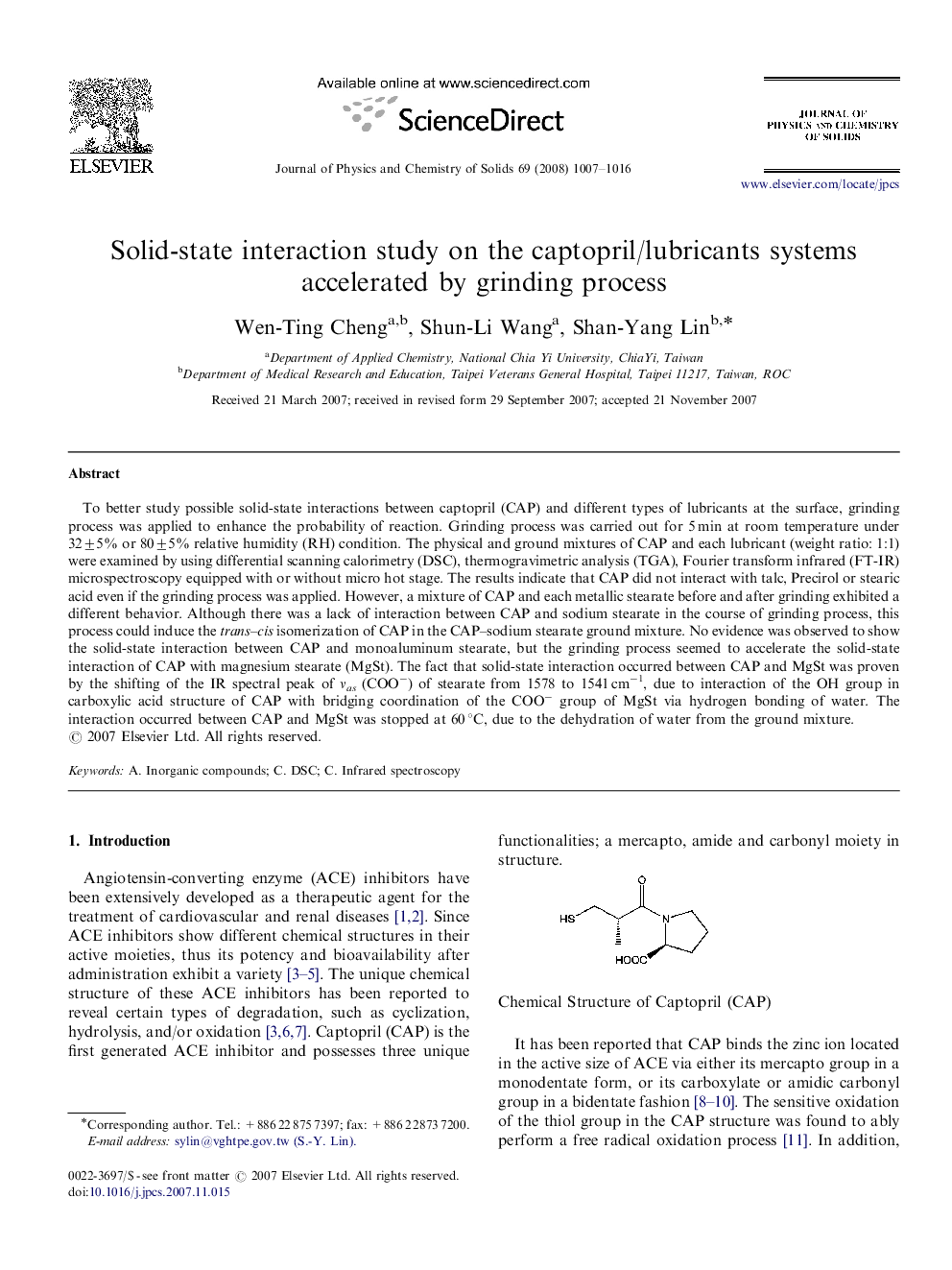| Article ID | Journal | Published Year | Pages | File Type |
|---|---|---|---|---|
| 1517667 | Journal of Physics and Chemistry of Solids | 2008 | 10 Pages |
To better study possible solid-state interactions between captopril (CAP) and different types of lubricants at the surface, grinding process was applied to enhance the probability of reaction. Grinding process was carried out for 5 min at room temperature under 32±5% or 80±5% relative humidity (RH) condition. The physical and ground mixtures of CAP and each lubricant (weight ratio: 1:1) were examined by using differential scanning calorimetry (DSC), thermogravimetric analysis (TGA), Fourier transform infrared (FT-IR) microspectroscopy equipped with or without micro hot stage. The results indicate that CAP did not interact with talc, Precirol or stearic acid even if the grinding process was applied. However, a mixture of CAP and each metallic stearate before and after grinding exhibited a different behavior. Although there was a lack of interaction between CAP and sodium stearate in the course of grinding process, this process could induce the trans–cis isomerization of CAP in the CAP–sodium stearate ground mixture. No evidence was observed to show the solid-state interaction between CAP and monoaluminum stearate, but the grinding process seemed to accelerate the solid-state interaction of CAP with magnesium stearate (MgSt). The fact that solid-state interaction occurred between CAP and MgSt was proven by the shifting of the IR spectral peak of νas (COO−) of stearate from 1578 to 1541 cm−1, due to interaction of the OH group in carboxylic acid structure of CAP with bridging coordination of the COO− group of MgSt via hydrogen bonding of water. The interaction occurred between CAP and MgSt was stopped at 60 °C, due to the dehydration of water from the ground mixture.
